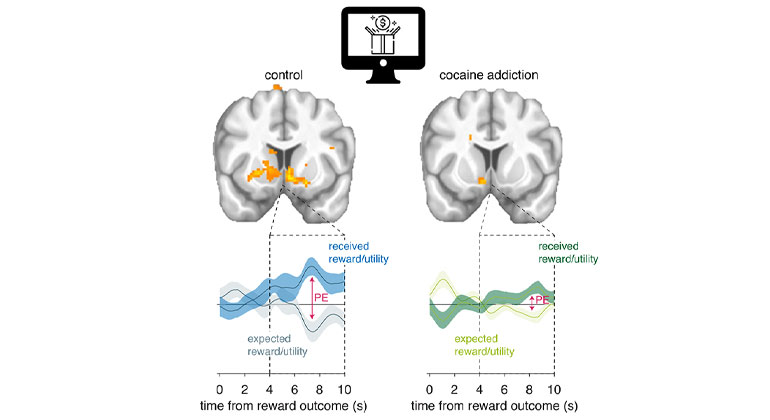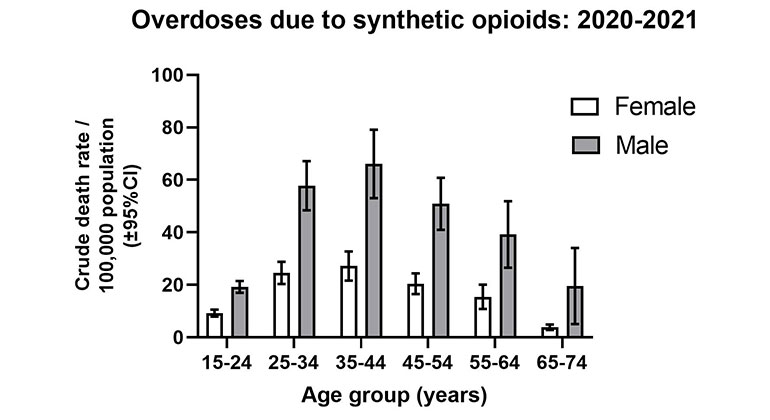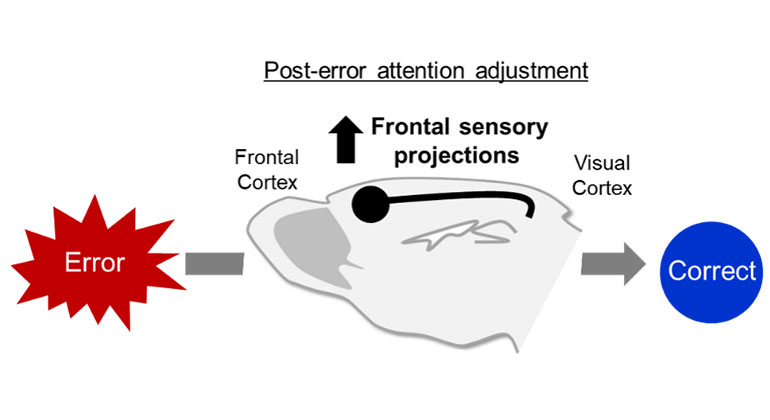Buprenorphine Implants May Be Effective Relapse Prevention Tool for Adults With Opioid Dependence
While buprenorphine has long been used to treat adults with opioid dependence, its efficacy can be hindered by lack of adherence to daily, sublingual (beneath the tongue) doses of the medication. New research led by the Icahn School of Medicine at Mount Sinai published online today in The Journal of the American Medical Association (JAMA) showed that a higher percentage of stable, opioid-dependent patients given six-month buprenorphine implants remained abstinent compared to patients given the medication sublingually.
The study is the first head-to-head safety and efficacy trial of buprenorphine implants and daily sublingual buprenorphine on long-term remission of opioid use disorder in patients who were previously stabilized on 8mg or less of sublingual buprenorphine. Findings indicate that the implants are non-inferior to sublingual buprenorphine in the main outcome measure, which was maintaining abstinence from illicit opioids in at least four of the six study months.
“There are some individual and public health risks with daily dosing of sublingual buprenorphine, such as missed doses and accidental pediatric exposure, as well as the risk of theft or intentional diversion,” said Richard N. Rosenthal, MD, Professor of Psychiatry, Icahn School of Medicine at Mount Sinai and Medical Director of Addiction Psychiatry, Mount Sinai Behavioral Health System. “Given that transitioning to implants did not lead to increased craving or withdrawal symptoms and that the implants remain in place over the active treatment period, buprenorphine implants are an opportunity to reduce adherence issues and may improve efficacy in stable patients with opioid dependence.”
Opioids are a class of medications that relieve pain and include oxycodone, hydrocodone, codeine, morphine, fentanyl and others. They reduce the intensity of pain signals reaching the brain and affect those brain areas controlling emotion, which diminishes the effects of a painful stimulus. As people use opioids repeatedly, their tolerance increases and they may not be able to maintain the source for the drugs. This can cause them to turn to seeing multiple physicians for prescriptions or to the black market for these drugs and even switch from prescription drugs to cheaper and more risky substitutes like heroin. Opioid dependence is a growing public health problem in the United States and globally, associated with the spread of viruses such as HIV and hepatitis C, as well as fatal overdose when left untreated.
In this study, 177 opioid-dependent participants with stable abstinence were randomly assigned to sublingual buprenorphine with placebo implants or buprenorphine implants with sublingual placebo. Over six months, 86 percent of participants receiving implants and 72 percent receiving sublingual buprenorphine maintained abstinence from opioids.
“What we would like to address in future studies is the rate and predictors of relapse after implant discontinuation,” said Dr. Rosenthal. “Our population in this trial also had a high response rate in the control group, so further studies are needed in broader populations to assess the efficacy of buprenorphine implants versus sublingual buprenorphine in other settings.”
Collaborators of Dr. Rosenthal’s study include researchers from University of Kentucky College of Medicine, Braeburn Pharmaceuticals, TCM Groups Inc., Titan Pharmaceuticals, and Friends Research Institute.
Conflict of Interest Disclosures:
All authors have completed and submitted the ICMJE Form for Disclosure of Potential Conflicts of Interest. Dr. Rosenthal reports grants and nonfinancial support from Braeburn Pharmaceutical during the conduct of the study.
Funding/Support:
This study was funded by Braeburn Pharmaceuticals.
About the Mount Sinai Health System
Mount Sinai Health System is one of the largest academic medical systems in the New York metro area, with 48,000 employees working across seven hospitals, more than 400 outpatient practices, more than 600 research and clinical labs, a school of nursing, and a leading school of medicine and graduate education. Mount Sinai advances health for all people, everywhere, by taking on the most complex health care challenges of our time—discovering and applying new scientific learning and knowledge; developing safer, more effective treatments; educating the next generation of medical leaders and innovators; and supporting local communities by delivering high-quality care to all who need it.
Through the integration of its hospitals, labs, and schools, Mount Sinai offers comprehensive health care solutions from birth through geriatrics, leveraging innovative approaches such as artificial intelligence and informatics while keeping patients’ medical and emotional needs at the center of all treatment. The Health System includes approximately 9,000 primary and specialty care physicians and 11 free-standing joint-venture centers throughout the five boroughs of New York City, Westchester, Long Island, and Florida. Hospitals within the System are consistently ranked by Newsweek’s® “The World’s Best Smart Hospitals, Best in State Hospitals, World Best Hospitals and Best Specialty Hospitals” and by U.S. News & World Report's® “Best Hospitals” and “Best Children’s Hospitals.” The Mount Sinai Hospital is on the U.S. News & World Report® “Best Hospitals” Honor Roll for 2024-2025.
For more information, visit https://www.mountsinai.org or find Mount Sinai on Facebook, Instagram, LinkedIn, X, and YouTube.
CBD Reduces Craving and Anxiety in People With Heroin Use Disorder
May 21, 2019 View All Press Releases



